Photographs: B Mathur/Reuters.
Most companies 'maintain' MPs to influence govt
Image: Bharatiya Janata Party (BJP) person dressed as Lord Yamaraj to protest against corruption.Photographs: Krishnendu Halder/Reuters.
He writes that most of the political parties show interest in exposing corruption when they are in the Opposition. "Once they succeed either in pulling down the government or bringing about a change in the government, they lose interest.
Most companies 'maintain' MPs to influence govt
Image: Supporters of Anna Hazare hold placards as they protest against corruption.Photographs: Ajay Verma/Reuters.
Kumar says that corruption has ceased to be an issue among the political parties and most of them have not submitted their accounts to the Election Commission in spite of Supreme Court directions.
In his foreword, former NSA and IB chief M K Narayanan writes, "The publication of 'The Dark Side of Black Money' could not have been better timed. The seamier side of the illegal flow of funds from India to tax havens in different parts of the world, causing loss to not only the country's exchequer, but giving rise to possibilities of misuse of such funds by crime syndicates, terrorist outfits, and other anti-establishment and anti-national forces has lately come in for unprecedented public scrutiny...
Most companies 'maintain' MPs to influence govt
Image: A supporter of Anna Hazare holds a placard in front of a portrait of Mahatma Gandhi.Photographs: Krishnendu Halder/Reuters.
In the preface, Kumar writes, "When former Swiss banker Rudolf Elmer gave WikiLeaks founder and owner Julian Assange information about bank accounts of more than 2,000 prominent individuals, potentially exposing tax evasion, there were heated debates in the electronic and print media as to who would be the possible Indians, whose names may figure in the said list.
Most companies 'maintain' MPs to influence govt
Image: Supporters of Anna Hazare hold placards in a protest against corruption.Photographs: Ajay Verma/Reuters.
According to Kumar, this news provided enough ammunition to the Opposition parties to discredit the government for its inaction and failure, among others, in this area.
Most companies 'maintain' MPs to influence govt
Image: A demonstrator wears a sticker on his forehead during a protest rally against corruption.Photographs: Danish Siddiqui/Reuters.
In his book, Kumar makes an effort to "highlight the problem faced not only by India but by many emerging economies and developing countries where former rulers, dictators, tyrants, including corrupt politicians, terrorist organisations, unscrupulous businessmen, organised crime and drug mafias have stashed their wealth in not only Swiss banks but other tax havens". Kumar has authored "The Preventive Detention Laws of India" and co-authored "The Narcotics Drugs and Psychotropic Substances Laws of India".

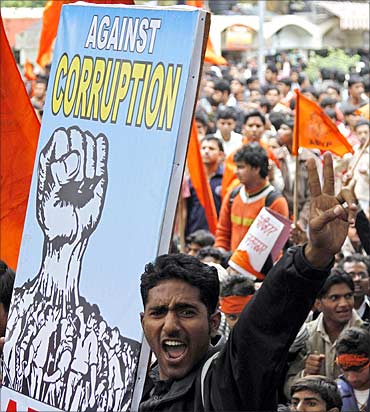
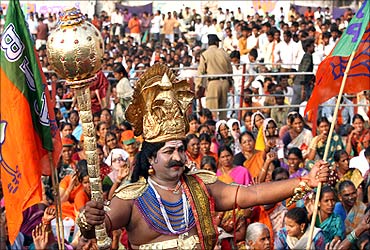
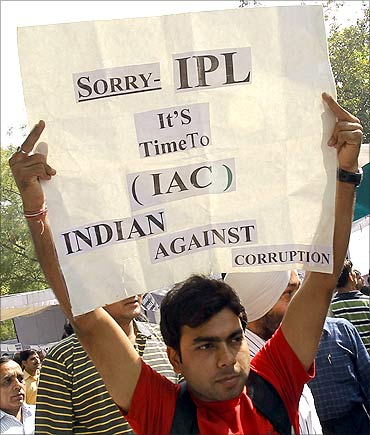

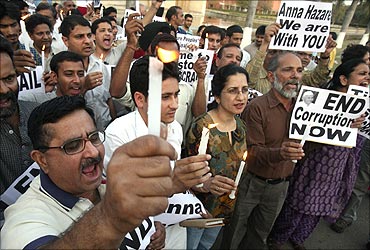
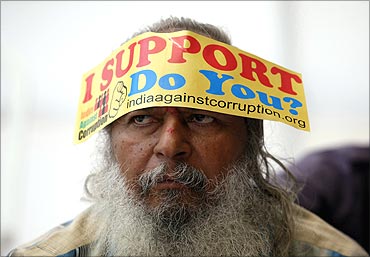
article